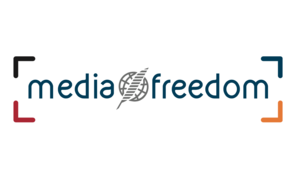The Board of WAN-IFRA deplores the 18th April killing of journalist Lyra McKee in Londonderry/Derry, Northern Ireland by an unidentified gunman belonging to the New IRA. The Board urges the Police Service of Northern Ireland to vigorously pursue its investigation until Ms McKee’s killer is identified and brought to justice. The Board also encourages politicians in Northern Ireland to work through the current political impasse as a matter of urgency and return to the power-sharing arrangement to prioritise the safety of journalists and strongly deter the onset of a climate of impunity for those who attack or murder media professionals.
The Board of WAN-IFRA remains deeply concerned by the 2018 arrest and questioning of journalists Trevor Birney and Barry McCaffrey in connection to their work on acclaimed documentary ‘No Stone Unturned’, an investigation into the murder of six men by suspected loyalist paramilitary gunmen in Northern Ireland in 1994. The Board notes that Amal Clooney, the UK Foreign Secretary’s special envoy on media freedom, has been urged to assist in the case and remains hopeful that the recently opened judicial review will reaffirm legal protections for investigative journalists and their sources.
The Board of WAN-IFRA urges the UK government to make good on its commitment to repeal Section 40 of the Crime and Courts Act 2013 without commencement, as soon as possible. The provision, introduced in the wake of the Leveson Inquiry, would force any publisher not signed up to an approved regulator to pay the claimant’s litigation costs as well as its own, even when the title’s journalism has been vindicated by the court. The Board remains seriously concerned that the threat implied by this legislation encourages a climate of self-censorship and risks silencing investigative journalism.
The Board of WAN-IFRA supports an exemption for news media publishers from the new legal controls, codes of conduct and regulatory systems proposed by the Online Harms White Paper, which are intended to curb the influence and reach of technology companies. The UK government must ensure that any extension of the criminal or civil law in respect to online harms, offensive communications, hate speech and harassment does not limit press freedom - including investigative reporting and publication - by imposing new criminal or civil legal duties of care, offences, liabilities, restrictions, regulatory or administrative burdens upon news publishers.
The Board of WAN-IFRA opposes the Law Commission’s consultative proposals for extending and tightening the criminal law over disclosures to and by the media under the Official Secrets Act and other legal provisions, as commissioned by the Cabinet Office. The Board calls for the extension and improvement of protections for journalistic activities, journalistic material and journalistic sources against encroaching state powers - the police, intelligence services and other authorities, including under investigatory powers, counter-terrorism and border security provisions.
The Board of WAN-IFRA calls for reform of the defamation law in Northern Ireland to bring it into line with the Defamation Act 2013 applicable to England and Wales. While the Board acknowledges Scotland also did not adopt the principles of the 2013 Defamation Act, it understands that the anomalies are to be addressed via a new Defamation and Malicious Publication (Scotland) Bill, currently under consultation. The Board recognises that these are devolved matters for the respective legislative assemblies, but urges lawmakers to adopt reforms as a matter of urgency to bring defamation laws up-to-date and in-line with recognised international standards.
The Board of WAN-IFRA calls for stronger guarantees that press and public access to courts, court documentation and court decision-making is promoted and not diminished by the Court Reform and Digitisation Programme that proposes open court hearings be replaced by out of court summary decisions, online procedures, and telephone, video or remote hearings with participants at various locations. Equally, the Board urges the UK government to ensure that new restrictions are not placed on coverage of crime and public oversight, police investigations and the criminal justice system by the extension of reporting restrictions, anonymity restrictions and privacy laws.
The Board also calls for the extension of freedom of information legislation to government contractors at both the local and national level and opposes current draft Bills calling for new restrictions on access to environmental information and National Health Service (NHS) secrecy, including NHS Trust inquiries into serious patient safety incidents.
The Board of WAN-IFRA welcomes the UK Foreign Secretary’s campaign to prioritise media freedom and the safety of journalists, and looks forward to supporting the Foreign and Commonwealth Office in efforts to strengthen international political will and ensure meaningful, practical impact around these issues to the benefit of media and media professionals globally.




